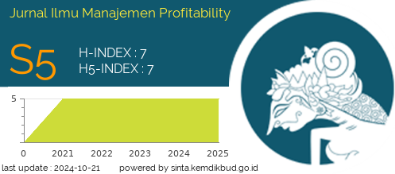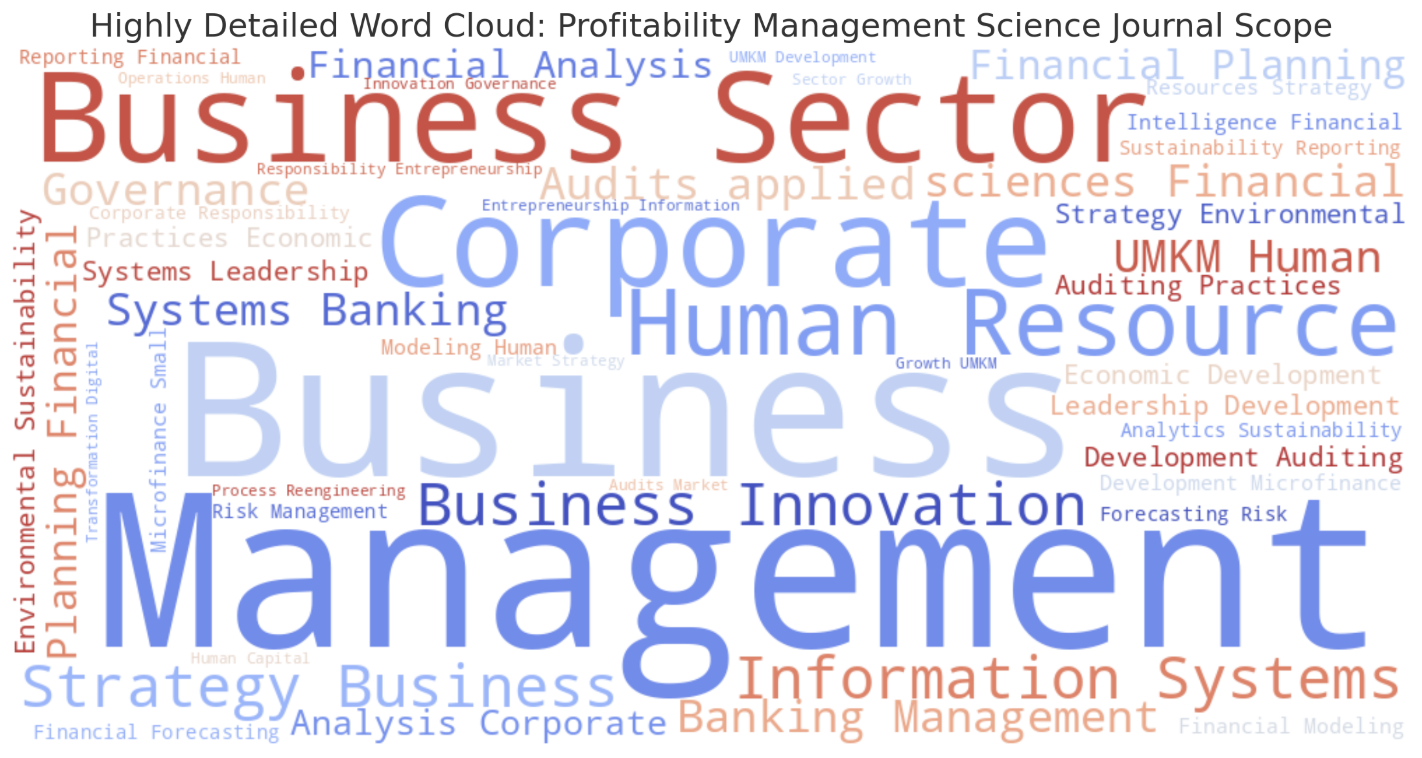Differences in Work Values and Work Attitudes of Generations X and Y in Malang City
Abstract
Keywords
Full Text:
PDFReferences
Adi, P.R.P., & Indrawati, K.R. (2019). Differences in work engagement based on employee work generation in THK concept companies in terms of work ethic. Udayana Journal of Psychology, 46-57
Adiawaty, S. (2019). The challenge of change is managing employee generational differences. ESSENCE: Journal of Business Management, 22(3), 376-382.
Amin, G., & Rahmiati, F. (2018). Organizational commitment of generations X and Y in the manufacturing industry. Journal of Communication Sciences (J-IKA), 5(2), 139-146.
Anshori, M,. & Iswati, S. (2009). Textbook of quantitative research methodology. Surabaya: Airlangga University Press.
Azwar, S. (2012). Research methods. Yogyakarta: Learning Library.
Banks, S. (2021). Ethics and values in social work (practical social work series) 5th edition. Macmillan: Red Globe Press.
Baron, A., & Michael, A. (2013). Human capital management: Achieving added value through people. Trans. Lilian Juwono. Jakarta: PPM.
Bencsik, A., Juhász, T., & Horváth-Csikós, Gabriella. (2016). Y and Z Generation at workplaces, Journal of Competitiveness, 8(3), 90-106.
BPS Malang City. (2021). Malang City in Numbers. Accessed via the Central Statistics Agency (bps.go.id) > on March 28 2021
BPS. (2021). 2020 Population Census Results. Accessed at < Central Statistics Agency (bps.go.id) on March 24 2021
Byrd, M. Y., & Scott, C. L. (2018). Diversity in the workforce; Current issues and emerging trends (2nd Edition). New York: Routledge.
Chandra, D.O., Hubeis, A.V.S., & Sukandar, D. (2017). Generation X and Generation Y job satisfaction regarding work commitment at Bank Mandiri Palembang. Journal of Business and Management Applications, 3(1), 12-22.
Damiati., Masdarini, L., Suriani, M., Adnyawati, N.D.M.S., Marsiti, C.I,R., Widiartini, K., & Angendari, M.D. (2017). Consumer behavior. Depok: PT Grafindo Persada.
Daryanto, S.N. (2013). Dynamics of work values: Indigenous study of Javanese employees on the island of Java. Thesis. Semarang State University.
Djaali. (2020). Quantitative research methodology. Jakarta: Bumi Literacy.
Erickson, T. (2008). Plugge in the generation y guide to thriving at work. Boston: Harvard Business Press.
Fadli, F. (2021). Property developers must prepare, gen pimpin-incom e-top accessed March 24 2021.
Fatimah, H., Dharmawan, A.H., Sunarti, E., & Affandi, M.J. (2015). The influence of individual characteristic factors and organizational culture on the engagement of generation X and Y employees. JAM: Journal of Management Applications, 13(3), 402-410.
Fattah, H. (2017). Job satisfaction and employee performance: Organizational culture, leader behavior and self-efficacy. Yogyakarta: Elmatera Publishers.
Filatrovi, E.W. (2020). Management of work values in Gen Y in increasing work commitment. Scientific Journal of Business Administration and Innovation, 4(1), 30-37.
Gallup. (2016). How millennials want to work and live: The Six Bis changes leaders have to make. Washington: Gallup Inc.
Ghozali, I. (2005). Multivariate analysis application with SPSS. Semarang: UNDIP Publishing Agency.
Greenberg, J., & Baron, R., A., (2003). Behavior in organizations. New Jersey: Pearson Education.
Gursoy, D., Maier, T. A., & Chi, C. G., (2013). Generational differences in work values and attitudes among frontline and service contact employees. International Journal of Hospitality Management, 32, 40-48.
Ivancevich, J., M., Konopaske, R., & Matteson, M.T. (2005). Organizational behavior and management. New York: McGraw-Hill.
James, O.R. (2017). Generation X, Y and the baby boomers. New York: Nova Science Publishers.
Jaya, I.M.L.M. (2020). Quantitative and qualitative research methods: Theory, application, and real research. Yogyakarta: Great Child of Indonesia.
Jurkiewicz, C. L. (2000). Generation X and the public employee. Public Personnel Management, 29(1), 55-74.
Kratz, H. (2013). Maximizing millennials: The Who, how, and why of managing gen Y. Thesis. University of North Carolina.
Lancaster, L. C., & Stillman, D. (2002). When generations collide. Who they are. Why they clash. How to solve the generational puzzle at work. New York: Collins Business.
Lyons, S. (2004). An Exploration of generational values in life and at work. ProQuest Dissertations and Theses. Carleton University.
Mathis, R. L., & Jackson, J. H. (2004). Human Resource Management. Jakarta: PT Salemba Emban Patria.
Nindyati, A.D. (2017). The meaning of employee loyalty in generation X and generation Y. Journal of Psychological Science and Profession, 1(1), 60-68.
Ng, E. S., Lyons, S. T., & Schweitzer, L. (2018). Generational career shifts: How matures, boomers, gen xers, and millennials view work. UK: Emerald Publishing.
Parry, E., & Urwin, P. (2010). Generational differences in work values: A review of theory and evidence. International Journal of Management Reviews, 13(1), 79–96.
Prayogo, A.S. (2013). The influence of work attitudes, salary and rewards on employee performance satisfaction at PT POS Indonesia Sidoarjo Branch (case study of employees working at PT POS Indonesia Sidoarjo Branch). Thesis. UPN.
Price, L. (2018). Managing the four different generations in the workplace effectively, efficiently and successfully. Meadville: Fulton Books.
Putra, Y.S. (2016). Theoretical review: Generational differences theory. Among Makerti, 9(18), 123-134.
Rahmawati, H. (2016). The influence of work values on the work productivity of production employees. Thesis. Muhammadiyah University of Malang.
Qisthy, I. A., Al Musadieq, M., & Sulistyo, M.C.W. (2018). The influence of organizational culture and job satisfaction of generation Y on organizational citizenship behavior (study of generation Y employees of PT BPR Tunas Artha Jaya Abadi Head Office). Journal of Business Administration, 58(1), 219-228.
Rosadi, R. (2004). Public relations and communication research methods. Jakarta: Raja Grafindo Persada.
Reza, P., Luh Gede L.K.D., Putu Agus W.S. (2018). The influence of Brand Image on customer loyalty at the Malang Strudel souvenir shop.
Silaen, S. (2018). Social research methodology for writing theses and theses. Bandung: In Media.
Smola, K. W., & Sutton, C. D. (2002). Generational differences: Revisiting generational work values for the new millennium. Journal of Organizational Behavior, 23(SPEC. ISS.), 363-382.
Thematic Gender Statistics. (2018). Profile of the Indonesian Millennial Generation, Ministry of Women's Empowerment and Child Protection.
Sugiyono. (2013). Educational research methods (quantitative, qualitative and R&D approaches). Bandung: Alphabeta.
Sugiyono. (2016). Quantitative, qualitative, R&D research methods. Bandung: IKAPI.
Sugiyono. (2018). Quantitative, qualitative and R&D research methods. Bandung: Alphabeta.
Sutampi, A., Priyatama, A. N., & Astriana, S. (2018). The relationship between job embeddedness and collectivism culture in generation X and Y employees at Pltd Siantan. Journal of Cybernetics, 11(2), 145-154.
Sutrisno, E. (2018). Organizational culture (5th printing). Jakarta: Prenamemedia Group.
Thian, A. (2021). Organizational behavior. Yogyakarta: Andi Publishers.
Twenge, J. M. (2006). Generation me: Why today's young Americans are more confident, assertive, entitled—and more miserable than ever before. New York: Free Press.
Ucanok, B. (2009). The Effect of work values, work-value congruence and work centrality on organizational citizenship behavior. International Journal of Behavioral, Cognitive, Educational, and Psychological Science, 1,1- 14.
Umam, K. (2010). Organizational behavior. Bandung: Pustaka Setia.
Umam, K. (2012). Organization management. Bandung: Pustaka Setia.
Urick, M.J. (2019). The Generation myth: How to improve intergenerational relationships in the workplace. New York: Business Expert Press.
Wibowo. (2015). Organizational behavior. Jakarta: Rajawali Press.
Yigit, S., & Aksay, K. (2015). A Comparison between generation X and generation Y in terms of individual innovativeness behavior: The Case of Turkish health professionals. International Journal of Business Administration, 6(2), 106-117.
DOI: https://doi.org/10.26618/profitability.v8i1.13535
Refbacks
- There are currently no refbacks.

Jurnal ilmu Manajemen Profitability Is Licenced Under a Creative Commons Attribution-NonCommercial-NoDerivatives 4.0 International License





1.png)